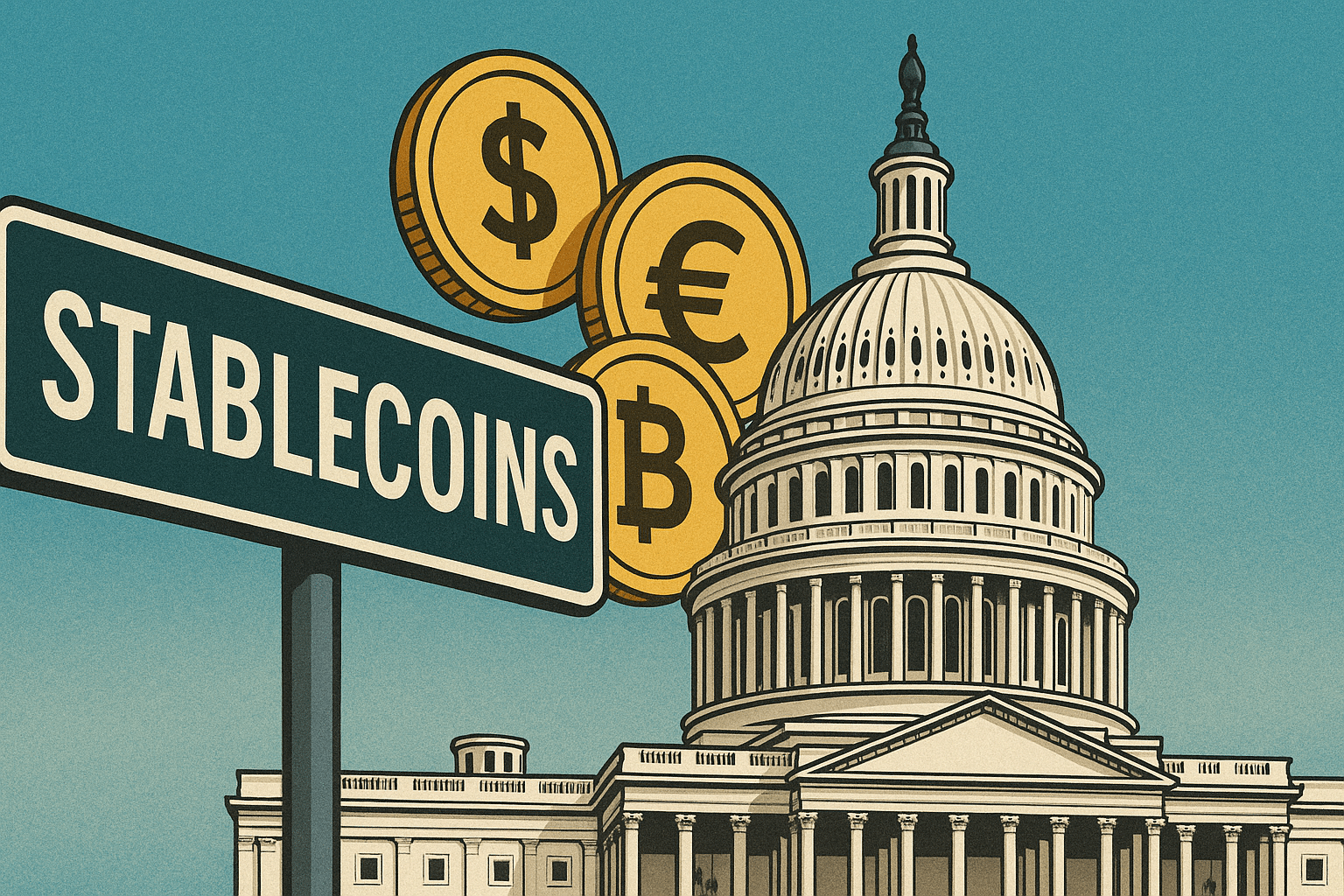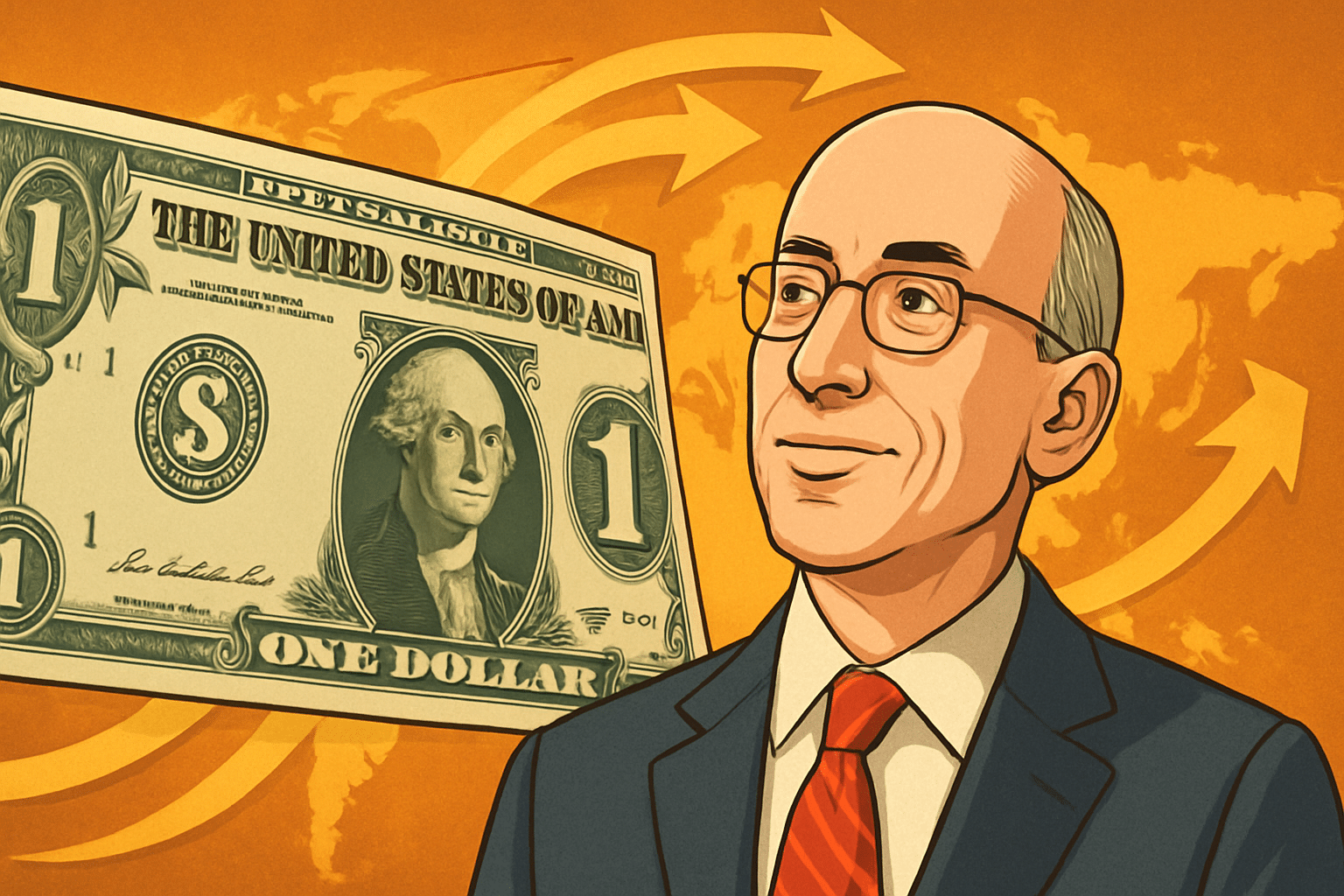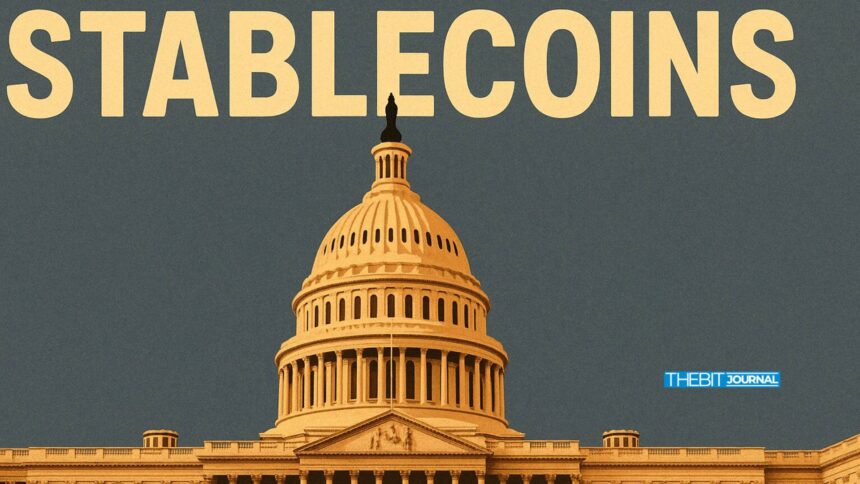U.S. lawmakers have officially transformed stablecoins into regulated financial instruments through the GENIUS Act, which was signed into law last week. The law accelerates the federal push to formalize stablecoin usage and integrate it into traditional finance. It aims to establish a secure framework for payment stablecoins while expanding the dollar’s global dominance through regulated digital infrastructure.
GENIUS Act Ushers in New Financial Order
The GENIUS Act, short for “Guiding and Establishing National Innovation for U.S. Stablecoins Act of 2025,” introduces strict rules for stablecoin issuers. It mandates 1:1 reserve backing, requires licensing, and blocks non-financial firms from issuing stablecoins without federal approval. Violations carry penalties of up to $200,000 per day and potential criminal liability.
This regulatory clarity compares stablecoin frameworks to traditional bank frameworks, increasing compliance responsibilities for crypto firms. It demands that stablecoin issuers hire compliance teams and integrate risk management systems. Winston & Strawn LLP noted that the law “pushes stablecoins into a regime similar to banks.”
Industry experts view the law as a milestone for U.S. financial modernization. Genna Garver, a partner at Troutman Pepper Locke LLP, said,
“The GENIUS Act authorizes tokenized fiat and legitimizes digital U.S. dollarization.”
Clear federal oversight is expected to help attract institutions that were previously cautious due to legal uncertainty.
Also Read: Trump Pushes GOP to Revive Crypto Bills: What’s at Stake for Stablecoins?
Wall Street’s Growing Adoption Accelerates
The GENIUS Act has already spurred financial institutions to explore blockchain-backed payment systems. JPMorgan, despite CEO Jamie Dimon‘s public skepticism, has broadened its stablecoin services and now accepts Bitcoin as loan collateral. The bank is also developing new programs that are aligned with GENIUS compliance.

Circle’s $20 billion IPO and the rise of the World Liberty USD1 coin signal Wall Street’s commitment to digital asset adoption. These developments followed Vice President JD Vance’s endorsement of stablecoins as a tool to enhance U.S. economic strength. The administration’s unified stance appears to be shifting corporate strategies in real-time.
Developer infrastructure firm Alchemy reported rising engagement from banks since the law’s passage. CTO Guillaume Poncin stated, “Every major bank will move toward issuing or supporting stablecoins.” With regulatory uncertainty reduced, traditional finance sees stablecoins as key to future financial innovation.
GENIUS Act Accelerates Dollar Dominance and Global Usage
Stablecoins now play a central role in U.S. digital finance strategy, reinforcing dollar dominance in cross-border payments. By creating programmable U.S. dollars, the GENIUS Act positions the greenback as a long-term global reserve currency. The law ensures that only regulated entities can issue dollar-backed digital tokens.

Chris Perkins, president of CoinFund, emphasized the law’s strategic value.
“GENIUS will position the dollar as the global reserve currency for decades,” he noted.
Stablecoins offer instant global transactions, especially beneficial to populations in countries with weak monetary policy.
Decentralized finance (DeFi) is also poised for growth as a result of the law. The ban on interest payments by stablecoin issuers could shift capital into DeFi platforms seeking yield opportunities. Perkins said this could result in “DeFi summer on steroids,” driven by trillions of dollars in tokenized cash.
Also Read: Why Senator Tim Scott Declares GENIUS Act a Turning Point for U.S. Crypto
Summary
The GENIUS Act marks a pivotal regulatory shift in U.S. digital finance, establishing the first federal legal framework for payment stablecoins. It mandates licensing, full reserve backing, and consumer protections, while reinforcing dollar dominance through programmable money. Wall Street and major institutions are accelerating adoption, backed by new legal clarity. DeFi platforms expect capital inflows due to restrictions on stablecoin interest. With bipartisan backing and economic tailwinds, the GENIUS Act could anchor the U.S. in global financial innovation for years to come.
FAQs
1. What is the GENIUS Act?
The GENIUS Act is a 2025 U.S. law that regulates dollar-backed stablecoins, requiring full reserves and licensing of issuers.
2. Who can issue stablecoins under the GENIUS Act?
Only licensed financial institutions can issue stablecoins, with non-financial entities needing special approval from federal regulators.
3. Does the GENIUS Act affect DeFi?
Yes, it indirectly boosts DeFi by banning interest payments on stablecoins, pushing users to decentralized platforms for yields.
4. Why is Wall Street interested in stablecoins now?
Regulatory clarity from the GENIUS Act has accelerated institutional adoption and allowed banks to issue or support stablecoins.
5. Will the GENIUS Act face political opposition?
Although digital assets remain a partisan issue, bipartisan support for innovation makes reversal of the GENIUS Act unlikely.
Glossary of Key Terms
Stablecoin – A digital asset pegged to a fiat currency like the U.S. dollar.
GENIUS Act – A U.S. law regulating the issuance and use of payment stablecoins.
DeFi – Decentralized finance, a blockchain-based financial ecosystem without intermediaries.
Tokenization – The process of converting real-world assets into digital tokens.
Reserve backing – Holding equivalent fiat reserves to match the total value of issued stablecoins.
Yield strategies – Methods used to earn interest or returns on crypto assets.
Programmable money – Digital currency that can execute automatic rules via smart contracts.
RWAs – Real-world assets, such as real estate or bonds, that can be tokenized for blockchain use.
SAB 121 – A repealed rule that had previously limited U.S. banks from holding digital assets in custody.
Cross-border payments – International money transfers between individuals or institutions.





























